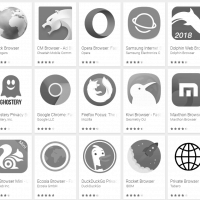Tag Archives: Content Adaptation
The most popular mobile browsers
March 14, 2019, by James Kielty
A well thought-out mobile strategy needs to take into account many characteristics of mobile users’ behaviour. With some analysis of mobile traffic from websites powered by DeviceAtlas, we can shed some light on the most popular mobile browsers in the largest markets. An effective mobile strategy starts with traffic analytics The first step when creating... Read More
Meta Viewport Best Practice
February 1, 2019, by Luke Captain
The meta viewport tag is a html tag that can be used to set the width and scale of content. It’s immensely useful for getting sites to renderer properly on mobile devices, mostly due to the fact that mobile devices generally have smaller screens than developers are designing for (who designs websites to be 375px... Read More
The DeviceAtlas guide to detecting iPhones
January 3, 2019, by James Kielty
The latest DeviceAtlas whitepaper explains the difficulty around accurate device detection of iOS devices. In all Apple devices, the User-Agent string only indicates the hardware type, not the model. By parsing User Agents alone, all you’ll know is whether you’re dealing with an iPhone or an iPad. This leaves some useful properties outside your field... Read More
How the world’s top websites serve mobile visitors
September 26, 2018, by Martin Clancy
Now that site loading time is officially a ranking factor for Google SERPS, it’s timely to look at best practice in the area of web performance. The world’s biggest sites as ranked by Alexa, take this metric very seriously. And so they should. Just eking out small gains in the web performance can have big... Read More
Sleepwalking into a walled garden
September 14, 2016, by ronan
Here at mobiForge we’ve been broadly positive towards Google’s AMP since its launch in October 2015. It’s by no means the only way to achieve the wholesome goal of fast-loading web pages, but by providing a well-documented format to adhere to that delivers excellent performance, the web has benefitted. Google now reports that the average... Read More











